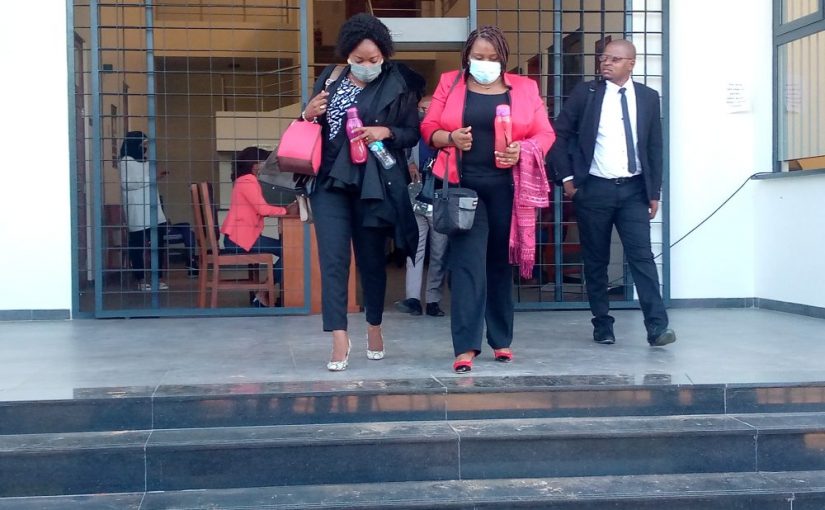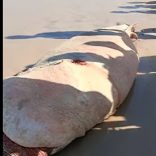Mozambique: Murder victim in Matola was senior police officer - AIM report
Taipo trial: Bank accounts kept outside State Financial Management System e-SISTAFE – AIM

Photo: Noticias
The bank accounts of the National Directorate of Migrant Labour (DTM), in the Mozambican Labour Ministry, were kept outside of the State Financial Management System (e-SISTAFE), which made it easy for the DTM management to sign contracts with various companies without the necessary prior approval of the Administrative Tribunal (TA), the body that supervises the legality of public expenditure.
The former National Director of Migrant Labour, Anastacia Zitha, confirmed to the Maputo City Court on Wednesday that the DTM kept its accounts out of e-SISTAFE, and hence away from the prying eyes of the TA.
Zitha was giving evidence for the second day in the trial of 11 people, headed by former Labour Minister Helena Taipo, who are accused of stealing 113 million meticais (about 1.8 million dollars at the current exchange rate) from the coffers of the DTM in 2014-15.
The DTM held accounts in at least five different banks, which were not under e-SISTAFE control. The prosecution argued that this allowed the money to be used for illegitimate purposes.
To make matters worse, the DTM did not have an Acquisitions Management Unit (UGEA) which should have been responsible for handling all procurement. The bank accounts were not registered under normal state administrative procedures, which was an invitation to the abuse of funds.
The DTM shunned public tenders and awarded contracts directly. This, according to the prosecution, allowed the proliferation of fake contracts, through which about 45 million meticais, intended for the social reinsertion of mineworkers returning from South Africa, was drained into private pockets.
The state procurement regulations make it clear that, under normal circumstances, contracts for goods or services can only be awarded after public tenders. Asked why the DTM did not follow this rule, Zitha said the DTM funds were kept in private accounts, “and so they were not in the State Financial Management System. This was the main reason why the contracts could not be authorized by the Administrative Tribunal”.
She admitted that companies such as Ve-tagres, which ought to have supplied carts for animal traction, electric pumps and other agricultural inputs, and Bela Eventos, which should have organised “roadshows”, did not comply with their contracts. The contracts were never intended to be fulfilled: these companies had only been hired to provide paperwork (receipts and invoices) which could explain why money had been taken out of the DTM coffers.
So the DTM management had “regularised” the missing funds by faking contracts.
Zitha also insisted that the DTM had delivered to her co-accused Pedro Taimo a cheque for 3.7 million meticais in favour of the company “Dona Tina Arte e Decorações de Interiores”, a company which happens to be owned by Taimo’s wife, Argentina Taimo.
“I suppose the DTM delivered the cheque to our colleague Pedro Taimo at the request of the company”, said Zitha. “The cheque reached the company because there is a delivery note, and the company never complained that it hadn’t received it”.
This further undermines the testimony given by Taimo who had told the court he did not know that his wife’s company was providing any services to the DTM.













Leave a Reply
Be the First to Comment!
You must be logged in to post a comment.
You must be logged in to post a comment.